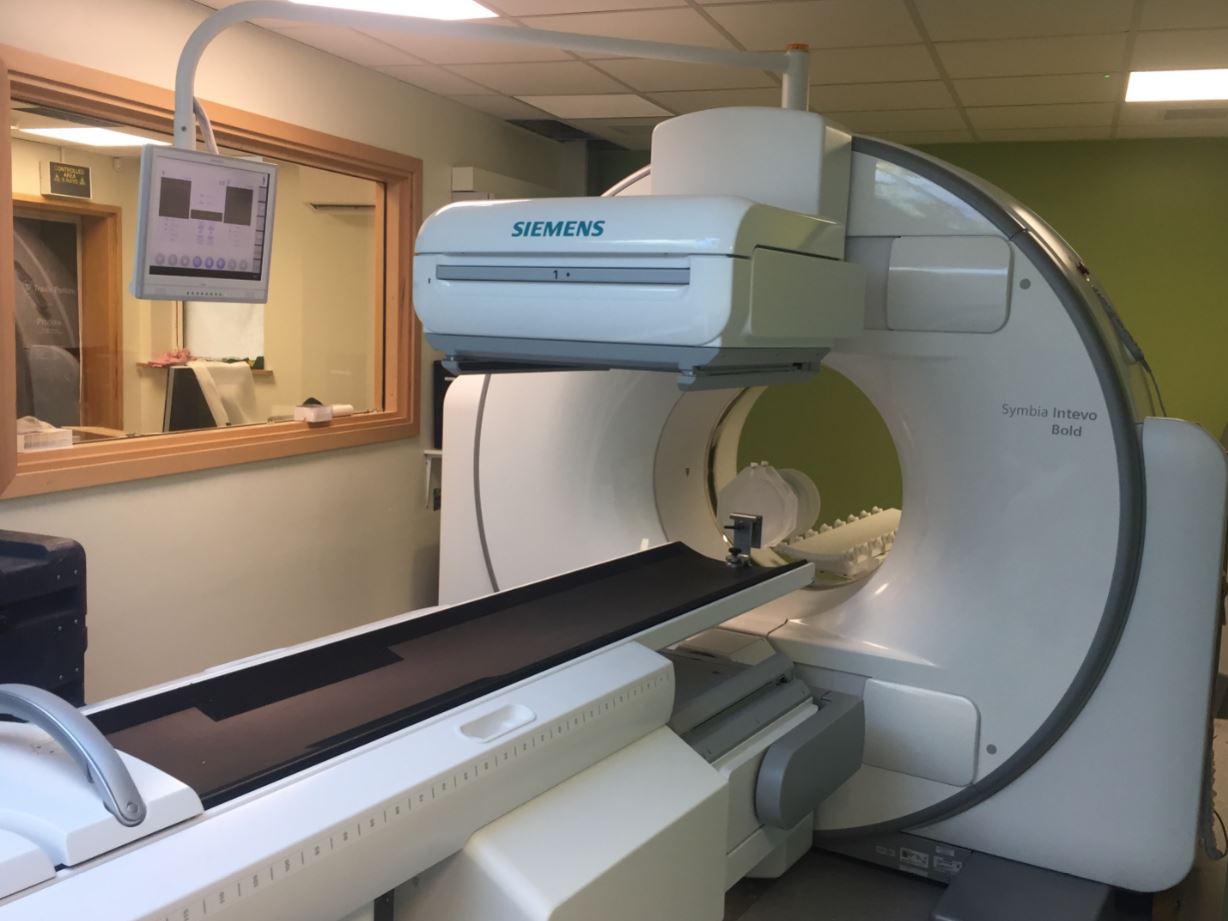New £2m scanners keep hospital’s nuclear medicine department ‘ahead of the game’
 Poole Hospital’s nuclear medicine department has received a significant boost with the roll-out of two new Siemens scanners, designed to improve diagnosis for its patients.
Poole Hospital’s nuclear medicine department has received a significant boost with the roll-out of two new Siemens scanners, designed to improve diagnosis for its patients.
The Intevo Bold Single Photon Emission Computer Tomography (SPECT)/CT scanners and their installation cost £2 million, and have been funded through a range of sources, including a generous donation of £500,000 from the Poole Hospital Cancer Treatment Trust as well as a grant from NHS Improvement.
The scanners will be used to provide improved diagnosis for cancer, heart disease, kidney issues and gastric problems, and will replace the department’s two original machines.
The new scanners are set to benefit around 3,000 patients annually and faster scanning will allow the department to cut waiting times for diagnosis.
The faster scanning exposes patients to a lower radiation dose and provides more accurate images. In addition, the refurbishment of the department has allowed for the installation of light panels above the scanning couches. When a patient is scanned they can now either gaze at a ‘forest canopy’ or ‘white clouds in a blue sky’.
Commenting on the news, Stuart Dean, Poole Hospital Cancer Treatment Trust chairman, said: “Poole Hospital Cancer Treatment Trust was delighted when the nuclear medicine department approached us to agree to providing £500,000 towards the purchase and installation of the new Siemens SPECT/CT scanners.
“Over the years we have been involved in providing a number of scanners and other equipment to assist in the diagnosis and treatment of all forms of cancer.
“We are particularly pleased that this has come about as we are approaching the 50th anniversary of the trust, and nothing could have been achieved without the generosity of donations from the people of Poole and Dorset.”
Dr Kat Dixon, Poole Hospital’s head of nuclear medicine, added: “In nuclear medicine we use radioactive tracers to determine how a particular organ is functioning.
“Patients are injected with a specific radioactive tracer and then we use a gamma camera to see where the radioactive tracer has gone and what it is doing.
“Both new cameras are combined gamma cameras and CT scanners which will provide 3D imaging, fusing together information on function and structure of organs.”
Existing staff trained on previous scanners will be able to switch easily over to using the new scanners as they are also built by Siemens. Once the scanners have been commissioned staff will undertake a week of application training.
Caroline Manwaring-White, radiographer, explained: “I’m really pleased we have been able to secure the two scanners.
“They have a greater ability than our previous ones, and as Dorset’s sole nuclear medicine department, they will keep us ‘ahead of the game’.
“The scanners will give us a more accurate metastatic diagnosis for patients and will be complimentary to the PET CT scanner already in use in the hospital.”
The first scanner is already on site with the department set to receive the second machine in June. They have been affectionally nicknamed ‘Marie’ and ‘Pierre’.









